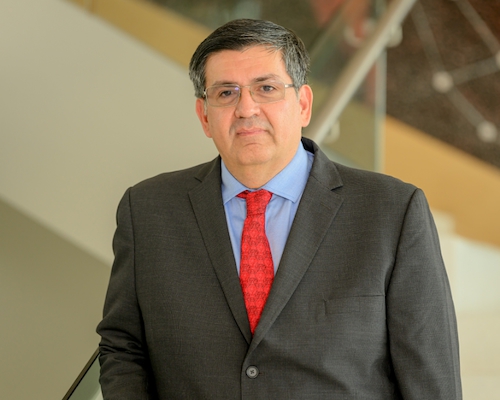IT讲坛2025年第8期 Lessons Learned after 29 Years Designing Multi-Objective Evolutionary Algorithms
讲座时间:6月10日 15:00
讲座地点:勤园12-304
报告人简介:
Carlos Artemio Coello Coello received a PhD in Computer Science from Tulane University (USA) in 1996. His research has mainly focused on the design of new multi-objective optimization algorithms based on bio-inspired metaheuristics (e.g., evolutionary algorithms), which is an area in which he has made pioneering contributions. He has received several awards, including the National Research Award (in 2007) from the Mexican Academy of Science and the 2012 National Medal of Science in Physics, Mathematics and Natural Sciences from Mexico's presidency, the 2013 IEEE Kiyo Tomiyasu Award, the 2016 The World Academy of Sciences (TWAS) Award in “Engineering Sciences”, and the 2021 IEEE Computational Intelligence Society Evolutionary Computation Pioneer Award. Since January 2011, he is an IEEE Fellow. He is currently the Editor-in-Chief of the IEEE Transactions on Evolutionary Computation. He is Full Professor with distinction (Investigador Cinvestav 3F) at the Computer Science Department of CINVESTAV-IPN in Mexico City, Mexico.
报告主要内容:
In this talk, I will describe my origins as a researcher working in a field which is now known as "evolutionary multi-objective optimization" (EMOO), 29 years ago. Then, I'll describe the inception of my research group at Cinvestav (in Mexico City, Mexico) in 2001, including some of the issues (good and bad) that researchers had to face at that time in Mexico. I will also mention some of the main differences between the way in which research on EMOO was conducted 25 years ago with respect to current research practices including, among other things, topics and methodological issues. In the last part of the talk, I'll briefly mention some of the pioneering contributions developed at my research group, but not without mentioning some of our biggest failures, too. The discussion will include some of the research topics in which I am currently interested. I'll finalize the talk with my personal (and a bit critical) view of the way in which research on EMOO is being conducted today, including some advice for young researchers working in this exciting field.



